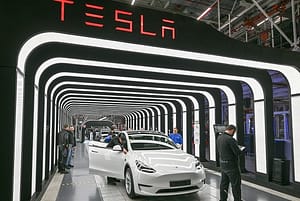The household saving ratio is estimated to have grown to 12.0% in the fourth quarter, up from 10.3% in Quarter 3 (July to Sept) 2024, the ONS revealed today.
During Quarter 4 2024, non-pension saving contributed 7.3 percentage points to the saving ratio, with pension saving contributing 4.7 percentage points.
In the previous quarter, non-pension saving contributed 5.8 percentage points and pension saving contributed 4.5 percentage points to the saving ratio.
Excluding the period affected by the coronavirus (COVID-19) pandemic, the household saving ratio stood at its highest point since Quarter 1 (Jan to Mar) 2010.
Moreover, non-pension savings contribution to the saving ratio is at its highest level on record, outside of the period affected by the coronavirus pandemic. Newspage asked financial services experts for their views, below.
Colin Low, Managing Director at Kingsfleet commented: “This is clear evidence that ‘the cost of living crisis’ is over, at least for now.
“The rampant inflation of 2022 and 2023 meant that households used their savings to make up for the shortfall in income due to the rapid increase in prices. However, for many, the last 18 months or so has been the complete reverse. Both benefits and earnings increased above the rate of inflation and households have often had a surplus. The good news is that they are using this in preparing for the likely storm ahead by building up cash reserves.”
Wes Wilkes, CEO at IronMarket Wealth commented: “With levels of savings now at the highest level since the Global Financial Crisis, the consumer is at maximum uncertainty. This will inevitably mean a slowdown in consumer spending and a significant dent in this government’s growth ambitions. It also further heightens the chances of a rate cut at the next MPC meeting.”
Harry Mills, Director at Oku Markets commented: “The fact that people can save more is good news about disposable income levels.
“However, it reflects weakening consumer confidence as saving is prioritised over spending. When consumers, driven by fear, stop spending in favour of saving, the economy slows down in a well-telegraphed and glaringly obvious self-fulfilling prophesy.
“I imagine unaffordable housing is part of the problem, as renters need to save large portions of their spare cash to scrape together a deposit, especially in London. The capital’s housing affordability ratio is above 12 in 80% of its local authorities, compared with an England-and-Wales figure of 7.7. That figure represents the multiple of the median salary to the median house price.”
Tony Redondo, Founder at Cosmos Currency Exchange commented: “The increase in the household saving ratio reflects a notable shift in financial behavior. It’s interesting to see this climb further from the third quarter, especially with non-pension savings jumping more than pension savings. That non-pension savings are hitting a record high (outside the COVID-19 anomaly) suggests people are prioritizing liquidity or short-term security over locking funds into pensions. Excluding the pandemic period, this being the highest ratio since Q1 2010 points to the lingering economic uncertainty, higher interest rates incentivizing cash savings, and a reaction to current global instability.”
Riz Malik, Independent Financial Adviser at R3 Wealth commented: “People are scared and there is still a huge cloud of uncertainty across the UK. Until the feel good factor returns, people, like squirrels, will hoard their nuts. The economy needs people to spend their money to get things moving which puts us in a stalemate position.”
Rob Mansfield, Independent Financial Advisor at Rootes Wealth Management commented: “It is a positive sign that people are building a nest egg and saving money for their future. In the short term It can help you through an emergency like your car breaking down or your boiler packing up. Over the longer term, it can be the difference between struggling and having a comfortable retirement.”






Leave a Comment